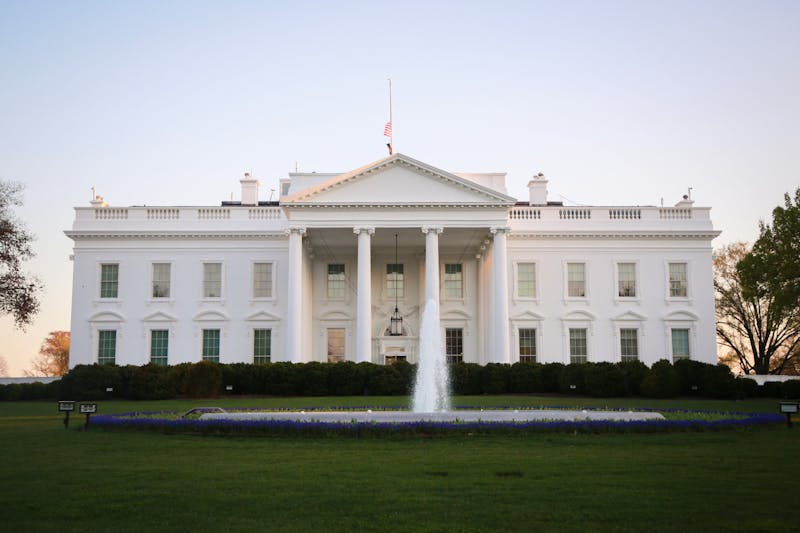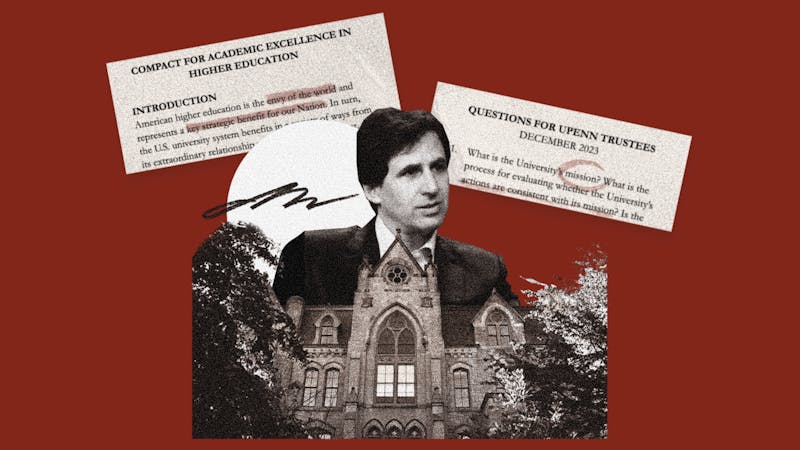The Law School has seen a decrease in applications this year, according to Renee Post, associate dean for admissions and financial aid at Penn Law.
This is in line with national trends released by the Law School Admissions Council, which indicate that American students’ interest in law school is waning.
As of Feb. 11, the number of law school applications was down 12.7 percent from the previous year, according to Wendy Margolis, director of communications for the LSAC, which administers the Law School Admission Test.
Penn Law remains unfazed by such trends since “the caliber, strength and diversity of our current applicants remain as strong as ever,” Post said, adding that although applications were due Feb. 15, the final application numbers have yet to be released.
Nationally, fewer students are taking the LSAT. Test takers for last December’s LSAT numbered 42,096, a 16.5 percent decrease from the previous year. For students taking the LSAT for the first time, the drop was even larger – 22.7 percent. In the Northeast, the number of test takers totaled 6,460, down 18.1 percent from the previous December, and in New England, there were 2,060 test takers, representing a 24.7 percent decrease.
Some attribute the drop in law school applications to the difficulty that law school graduates experience when finding jobs, according to 1998 Penn Law graduate Robert Miller, the author of Law School Confidential, a book that offers advice to law school applicants.
“It’s really important that somebody thinking about applying to law school does their homework,” Miller said. He added that students interested in applying should look to online resources, such as blogs by current law students and recent graduates to find candid information about job opportunities in law.
Miller, a practicing attorney, added that the economy is the primary reason why law schools are seeing a decrease in the number of applications.
“The economic conditions right now have created the worst job market for outcoming law students in memory,” he said.
Miller said that despite these difficulties, students who graduate from top tier schools like Penn Law are “still going to have the most options.”
“Name brand matters,” he said. “It matters for clerkships, it matters to employers, it matters to clients, and it matters in terms of opening up doors … If you get into a top law school, count your blessings.”
Sarah Klein, a College junior and president of Pre-Law Women at Penn, remains optimistic about a future in the law.
“Since the economy already shows some signs of starting to turn around, I’m hopeful that by the time I graduate law school in 2015 it will be much easier to get a job,” Klein wrote in an e-mail.
“In fact, I’d say that now is a great time to go to law school, since you avoid having to search for a full-time job during these tough economic times,” she added.
Matthew Bailey, a second-year Penn Law student, said he believes pursuing a law degree remains “a worthwhile endeavor.”
Law students “enjoy the idea of being a lawyer, and they see the positive influence they can have with a law degree,” he said. “I don’t think that’s going away, but I think they’re being practical about it.”
“Despite all its faults, [law remains] a very compelling and interesting way to make a living,” Miller said. “I’ve never been bored a day in my life as a lawyer.”
The Daily Pennsylvanian is an independent, student-run newspaper. Please consider making a donation to support the coverage that shapes the University. Your generosity ensures a future of strong journalism at Penn.
DonatePlease note All comments are eligible for publication in The Daily Pennsylvanian.







